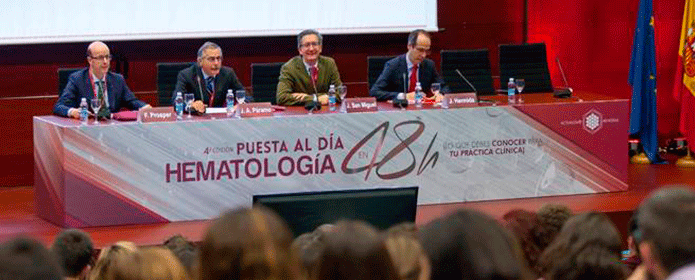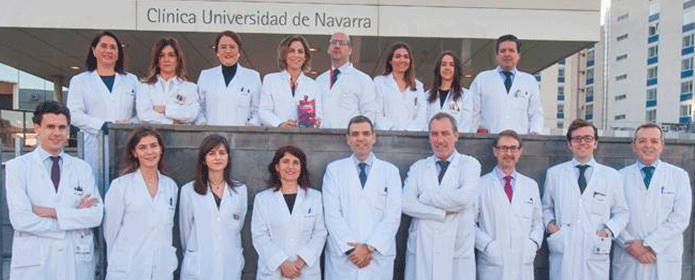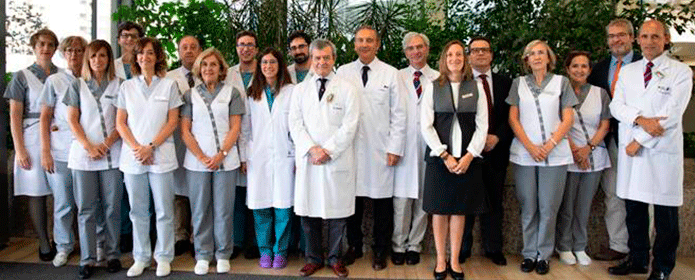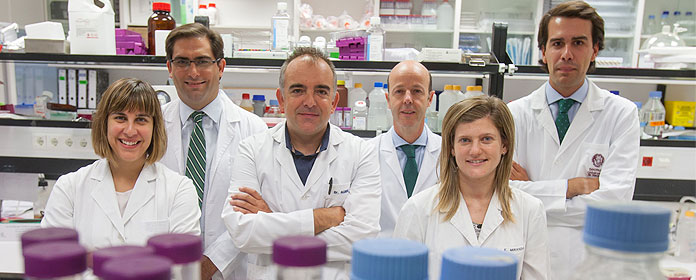Clínica Universidad de Navarra hosts the first meeting of the Accelerator Award that investigates early detection and intervention in the most common hematological tumors.
The session brings together researchers from 13 leading European groups in multiple myeloma, myelodysplastic syndromes/myeloblastic leukemia, and follicular lymphomas research
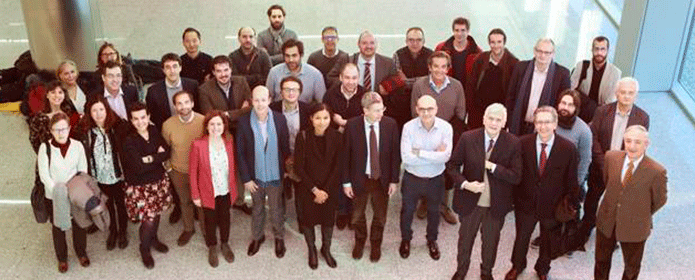
The Campus of Madrid of the Clínica Universidad de Navarra has hosted the first session of work of the international study "Early detection and intervention: Understanding the mechanisms of transformation and hidden resistance of incurable haematological malignancies", awarded by the European Consortium of Associations Against Cancer with an Accelerato Award and endowed with 5 million euros.
A session that has brought together researchers from 13 centers of excellence focused on the research of multiple myeloma, myelodysplastic syndromes/myeloblastic leukemia, and follicular lymphomas, the most frequent hematological tumors.
workshopDr. Jesús San Miguel, director of Clinical and Translational Medicine of the University of Navarra, who leads the international project and the Spanish group of research , focused on monoclonal gammopathies-multiple myeloma; Dr. Mario Cazzola, of the Fondazione IRCCS of the Policlinico San Matteo Pavia Hospital, who leads the Italian project , focused on myelodysplasia and myeloblastic leukemia; Dr. Mario Cazzola, of the Italian , focused on monoclonal gammopathies-multiple myeloma. Mario Cazzola, from the Fondazione IRCCS of the Policlinico San Matteo Hospital in Pavia, who leads the Italian group , focused on myelodysplasia and myeloblastic leukemia; and Dr. Jude Fitzgibbon, from the Barts Cancer Institute of Queen Mary University of London, who coordinates the English group , focused on the study of transformation and resistance in follicular lymphomas.
The study is aimed at goal to identify the mechanisms that make it possible to anticipate hematological tumors and, thus, to diagnose and treat them before severe clinical manifestations appear, in order to accelerate healing.
It is a pioneering project that brings together 13 European centers of excellence, focused on the study of three groups of hematological diseases: monoclonal gammopathies (multiple myeloma), myelodysplastic syndromes and myeloblastic leukemia, and follicular lymphomas.
The Spanish node is represented by:
- Clínica Universidad de Navarratogether with the research center Applied Medical (CIMA).
- Hospital 12 de Octubre, Madrid.
- University Hospital of Salamanca/research center del Cáncer de Salamanca.
- School of Engineering of the University of Navarra, San Sebastian, Spain
- Fundació Clínic per a la Recerca Biomèdica de Barcelona.
The researchers have selected these three groups of malignancies because they account for 50% of hematologic cancers. "The prognosis has improved substantially in the last decade, although only a small proportion of patients are cured. The problem is that these patients are probably being treated only when their cancer is fully developed. There is no doubt that the best chance of eradicating cancer cells is early detection and intervention," explains Dr. San Miguel.
That is why the researchers want to understand the mechanisms of transformation and resistance in order to be able to tackle early stages of the disease, rather than the fully developed disease with all its symptoms. "In this way, we aim to increase the fees of cure," adds the specialist.

